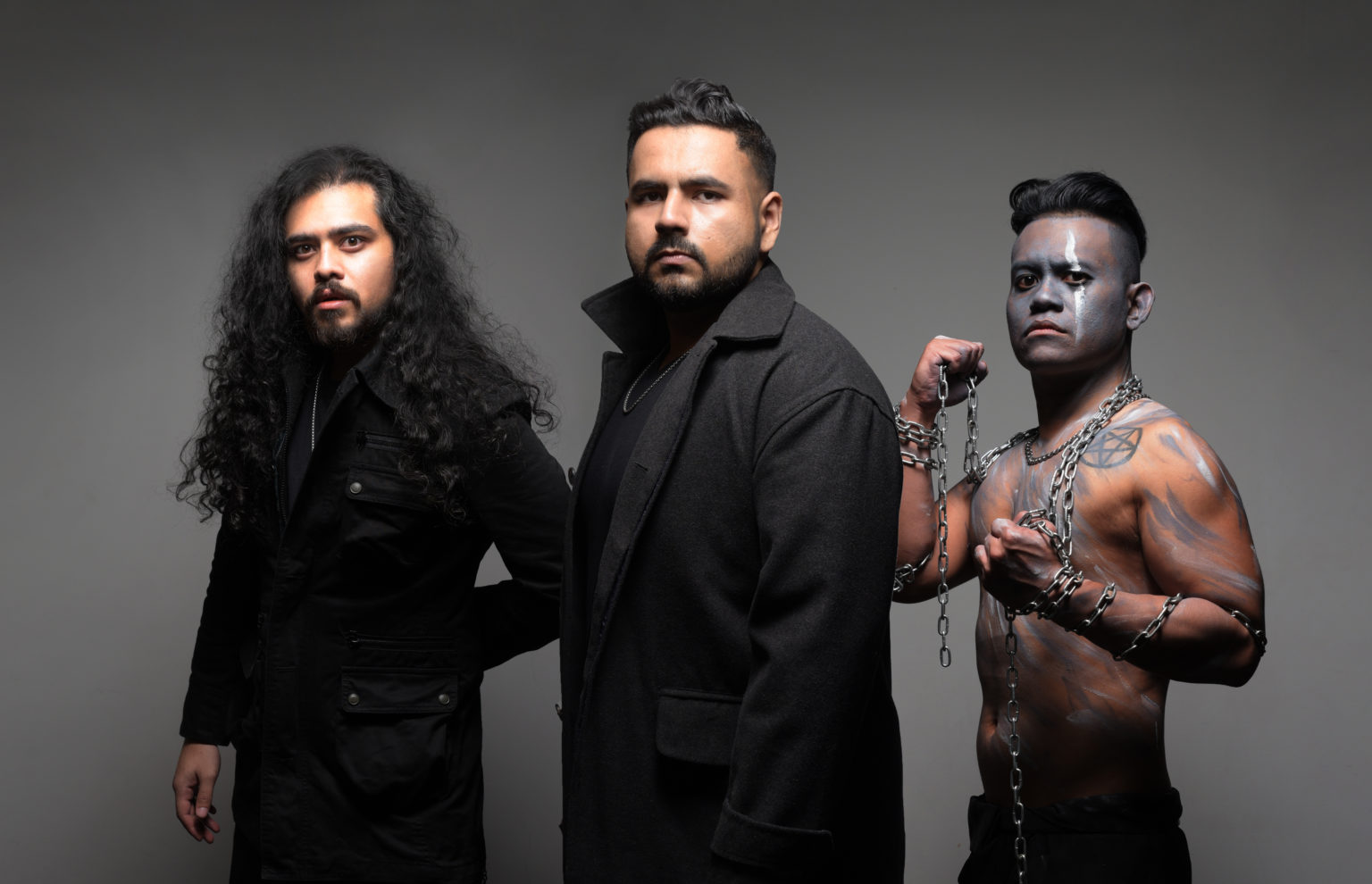What was the beginning pint for your music career? How did it all start?
The band really started in 2018. Vocalist Imran responded to an ad on a local internet forum looking for a vocalist interested in playing melodic and groove metal posted up by bassist Eze, the post was put up around 2012. Unperturbed, Eze responded and met up with Imran whom both realized that they had a love for classic thrash metal and wanted to combine more contemporary elements from bands. Expanding to a full 5 piece line-up, the band immediately released the sophomoric debut of Nocturnal Armour which combined elements of Gothenburg-style Melodic Death Metal and NWOAHM characteristics of groove likened from bands such as Chimaira, Devildriver and Lamb of God.
Was there any bumps on the road? What kind of challenges did you have to deal with?
For the longest time, it was being able to sustain the band through the turbulence of life. People grow, expectations warp and shrink; ideas, inspirations and influences expand and shift. The turbulence is evident as we can see that of today, the remaining members from the original line-up are Eze and Imran. Being able to keep members motivated with music and united with the vision of the band was one of the hardest challenges faced by the band. As opposed to running as a full 5 piece, the band currently operates as a three-piece with a rotating group of session musicians. Ideally, Mothflesh would like to complete the line-up with members who are willing to commit to the sustenance of the band as well as the desire to push their musical growth with every release.
What was the most fulfilling and satisfying moment so far?
Being one of the first Malaysian metal bands to play in Cambodia as well as being featured on Knotfest’s website. It was a great opportunity for us to show the world that extreme music in Malaysia is alive and well and does not pull its punches.
How would you describe the music that you typically create?
We call ourselves a Groovecore band. Incorporating tech-death riffs with elements of metallic hardcore and groove-metal rhythms. We grew up listening to a healthy mix of bands melodic tech-death bands like Necrophagist, Dying Fetus with groove-oriented bands like Chimaira, Daath and roots-era Sepultura.
What is your creative process like?
We’ve got two methods; one method takes a more organic approach which uses an idea or concept as an impetus to the riff writing and building the song around it. Another method is coming up with riff or rhythms that Eze or Ranveer has pre-recorded and sharing them. Once the riffs are arranged, Eze maps out some rudimentary drums and we share the completed arrangement with Imran who adds the vocal layers. It’s a process that involves and thrives from the creative input of the whole band. Sometimes it’s easy and songs come out naturally, sometimes it’s a bit more challenging and ideas do not want to be compromised and tensions may arise as a result; we’ve realized the many advantages when the ego is kept out of the creative process.
If you could change anything about the industry, what would it be?
Speaking specifically for Malaysia, I’d say just getting the government to play a lesser hand in the role of the expression of art. The Malaysian government regulates everything from the lyrical content of music and the image. Anything that may pose a threat to the social harmony and religious integrity of the country is pretty much considered illegal. Mothflesh, a band that prides itself on its lyrical themes of liberalism and individual expression often finds itself on the losing end of the stick with local authorities. One example that comes to mind is how corrupt officials in the port authority demanded a bribe for us to have our CDs of our latest album Machine Eater clear customs because the imagery and content were considered fundamentally heretical and politically deviant. Over-regulation leads to an abuse of power.
If you were asked to give a piece of advice to upcoming bands, what would that be?
Get your music in a format that is easily listenable and accessible as soon as possible. It doesn’t need to be in a physical format, but having it on YouTube or Spotify legitimizes the band and indicates that the band is serious to bookies and organizers. If people like your music, they can always listen to it on the drive back after the gig. Performing without any access for the listener to connect with the band beyond its live performances are antiquated in the current age of technology we exist in today.
What has been the best performance of your career so far?
Definitely has to be playing in one of South-East Asia’s punk festivals in the northern city of Chiang Mai. We were able to share the stage with the legendary Burmese punk band Rebel Riot which is one of the few Burmese punk bands who are openly fighting for social rights in Myanmar against the face of potential government persecution. We’re not a punk band, but we’ve always played alongside punk bands in the scene and it’s one of the more inclusive scenes in South-East Asia in our opinion. There’s no discrimination towards the music you play or how you look, just unbridled support which speaks volumes against the elitism that the metal scene tends to possess at times. What made the show, so fulfilling was that we almost missed it. We missed our slot because we were taking a train from Bangkok that experienced a delay in the middle of the travel because some jackasses set the forest which the train’s route runs through on fire. Once we arrived at the show, the last band was on stage, but accommodated our unintentional tardiness and got us to close it. It’s this brand of genuine love and empathy that helps the extreme music scene anywhere in the world survive and grow.
If you didn’t become a musician, what would you be doing now?
Probably something else as equally creative. Definitely in the artistic spectrum, but perhaps less conventional like building classic cars or winemaking.
What is new with the band at the moment? What are you currently working on and would like to share with the world?
Maddog just purchased an 8-string guitar so that means one thing. We’re going heavier. An EP is probably going to be in the works, we like to keep our releases consistent with a release of a single or EP every year. It’s a great way to highlight our creative headspace as a unit and engage our fans. Music is constantly evolving and presently quicker ever than before – in some sense, releasing music at an annual rate keeps our finger on the pulse with the state of music and technology. Beyond our musical goals, we’d like to explore the possibility of being one of the few Malaysian metal bands to be able to tour Europe comprehensively and share music from our little corner of the world.




